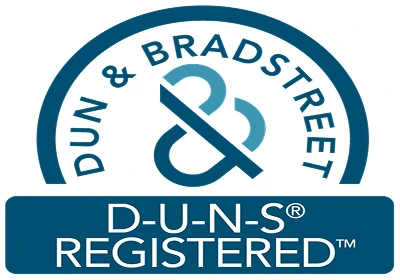Advanced Materials Published Insights
Published Date : 04 Mar, 2026
Low melting fiber is referred as a bi-component fiber which has strong bonding properties. The low melting fiber is used in the spinning of durable yarns. Moreover, this fiber is used as excellent insulating material in automotive and construction industry, due to its... View more
Published Date : 04 Mar, 2026
A single copper electrical conductor is known as copper wire. Copper wires are mainly used in electrical wiring. Single core means that there is a single piece of metal wire, typically copper or alum... View more
Published Date : 04 Mar, 2026
Indium gallium zinc oxide (IGZO) is a type of semiconductor material used in various electronic devices. It has a high electron mobility that makes it ideal for transistors and other components that need to switch quickly between on and off states. It is also used in ... View more
Published Date : 04 Mar, 2026
Coated Glass contains a conductive oxide infrared reflecting layer that makes them water repellence, dirt and snow repellence, durable protection, cleansing properties, and corrosion resistance. It is used in different sectors like marine, aviation, building and const... View more
Published Date : 04 Mar, 2026
Portable lenses are referred to lenses with compact size, and thus, are easy to carry from one place to another. Moreover, it offers convenient diversified shooting experience to the consumers of portable lenses. Portable lenses have bodies that are specifically creat... View more
Published Date : 04 Mar, 2026
Mercury is a toxic heavy metal that has harmful effects on the digestive systems, lungs, kidneys, nervous, and immune systems. In addition, inorganic salts of mercury including mercuric oxide (HgO), mercuric sulphide (HgS), and mercuric chloride (HgCl2) are corrosive ... View more
Published Date : 04 Mar, 2026
A white crystalline ingredient, ‘Alumina’ is typically made from bauxite. Alumina is widely used in engineering disciplines such as those involving anti corrosion compounds, wear and abrasion-resistant components, and the computer industry. Alumina has var... View more
Published Date : 04 Mar, 2026
Masking tape is referred as a type of pressure-sensitive tape which available in a different kinds of widths. It is a pressure-sensitive tape and made up of easy-to-tear paper. It is light weight adhesive which can be easily applied and removed without leaving any mar... View more
Published Date : 04 Mar, 2026
Electrically conductive adhesives are an alternative to soldering and can be used in a variety of electronic applications that require mechanical bonding of components or a substrate. They are especially useful for applications where the substrate is temperature sensi... View more
Published Date : 04 Mar, 2026
Report Description Silicon anode battery is the extension of lithium-ion battery that are also known as next-gen Li-ion batteries. Lithium-ion battery that uses silicon as anode in batteries leads to higher ... View more
Published Date : 04 Mar, 2026
Electrodeposition coating is the most conventional coating process used in automobile industry. The two types of electrodeposition available include anodic and cathodic. In cathodic electrodeposition coating, the metal part is negatively charged while the paint to be ... View more
Published Date : 04 Mar, 2026
Secondary glazing is an energy-efficient solution that involves the addition of a slim glazed panel to the doors and windows. Its benefits include cost-efficiency due to heat reduction and noise-reduction enhancement, thermal insulation in different weather conditions... View more
Published Date : 04 Mar, 2026
Bismuth oxychloride is an inorganic compound with the formula BiOCI, which finds its applications as a makeup colorant that provides an iridescent (shiny) effect. Moreover, it is utilized in pharmaceutical, automotive, and other industries. Therefore, the growth of th... View more
Published Date : 04 Mar, 2026
Based on end use industry, global acrylic fibers market is segmented into apparels, home furnishings, industrial, and outdoor. The apparel segment accounted for the largest market share, in terms of the revenue, in 2022, and contributed for 58.2% in 2022. The main app... View more
Published Date : 04 Mar, 2026
The acid proof linings are being used for providing mechanical integrity and robustness to the industrial components. It helps in the protection of process vessels and equipment which are used in industrial operations from corrosion, which might be caused due to alkal... View more
Published Date : 04 Mar, 2026
Electroplating process is the surface engineering, which involves deposition of a metal over the surface of another metal. Electroplating provides numerous benefits such as protection of surface from corrosion and enhancing the aesthetics of the products. Moreover, el... View more
Published Date : 04 Mar, 2026
Evaporation materials are used in thin-film deposition. Evaporated materials provide high purity coatings as compared to sputtering targets material. They are available in different processes thermal and e-beam evaporation process. Some of the types of evaporation mat... View more
Published Date : 04 Mar, 2026
Geosynthetics are the materials that are widely used in various building & construction projects. These materials provide different attributes such as stabilization & reinforcement of the base, enhanced stress absorption capacity, subgrade separation, and othe... View more





